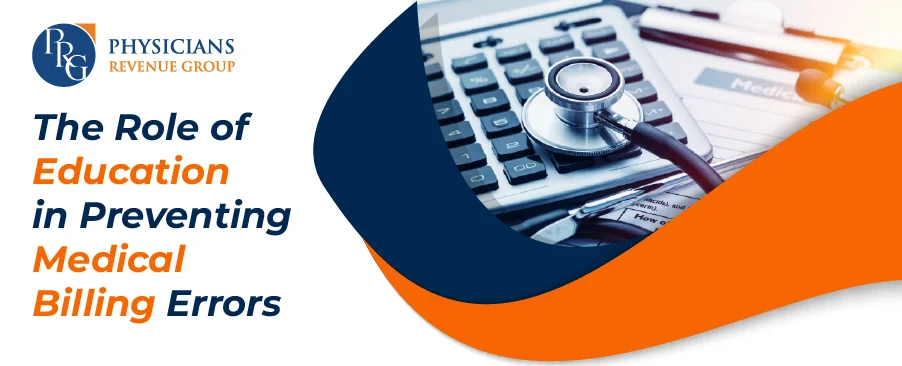
Email: info@prgmd.com | Call: +1 (630) 242-6474
Business hours: 9:00 to 5:00 | Monday to Friday
Email: info@prgmd.com | Call: +1 (630) 242-6474
Business hours: 9:00 to 5:00 | Monday to Friday

Table of Contents
ToggleErrors in medical billing stem from basic mistakes, which include typographical errors, data entry errors, errors in modifier coding, or prior eligibility verification issues. Even minor or more superficial errors can lead to substantial delays in claim reimbursements. Missed payments significantly impact the overall operations of a healthcare practice. It is for healthcare professionals and their medical billing services partners to avoid delayed or denied reimbursements by preventing billing errors.
Healthcare professionals earn the most income from successful claims processing and payments, any errors can significantly affect their financial viability.
But how can you make sure your claim filings are error-free?
A wrong patient ID is one of the most common medical errors. If your front office staff gets inaccurate information or the entry in billing software is faulty, it will be up to the billers to correct and resubmit rejected claims.
Taking time to check on the patient’s eligibility and double-checking all the information, including ensuring that the patient’s insurance ID is correct, can help prevent claims denials.
Code linkage displays the medical necessity via linking your diagnostic code to the procedural codes. In simpler words, your condition must match your treatment. It indicates confidence that the medical procedures done by the doctor are medically appropriate, and they should get reimbursements for those procedures.
If the code connection doesn’t indicate a medical need, you cannot charge for the claim. The more in-depth knowledge you have of the procedural and diagnostic codes you set, the easier it will be to assess the code linkage to your claims. It eliminates the time-consuming and expensive mistakes on those claims, which should be charged first.
The issues mentioned above happen frequently, so you must know what to look for and where for preventing billing errors efficiently. Your team can help operations by:
Share:
Categories
Recently Added

What is an ABN in medical billing?

What does a Clearinghouse do During Claims Submission?

What is EOR in Medical Billing?
We Would Love to Assist You!
We treat your data confidentially and don’t share any information with a third party.